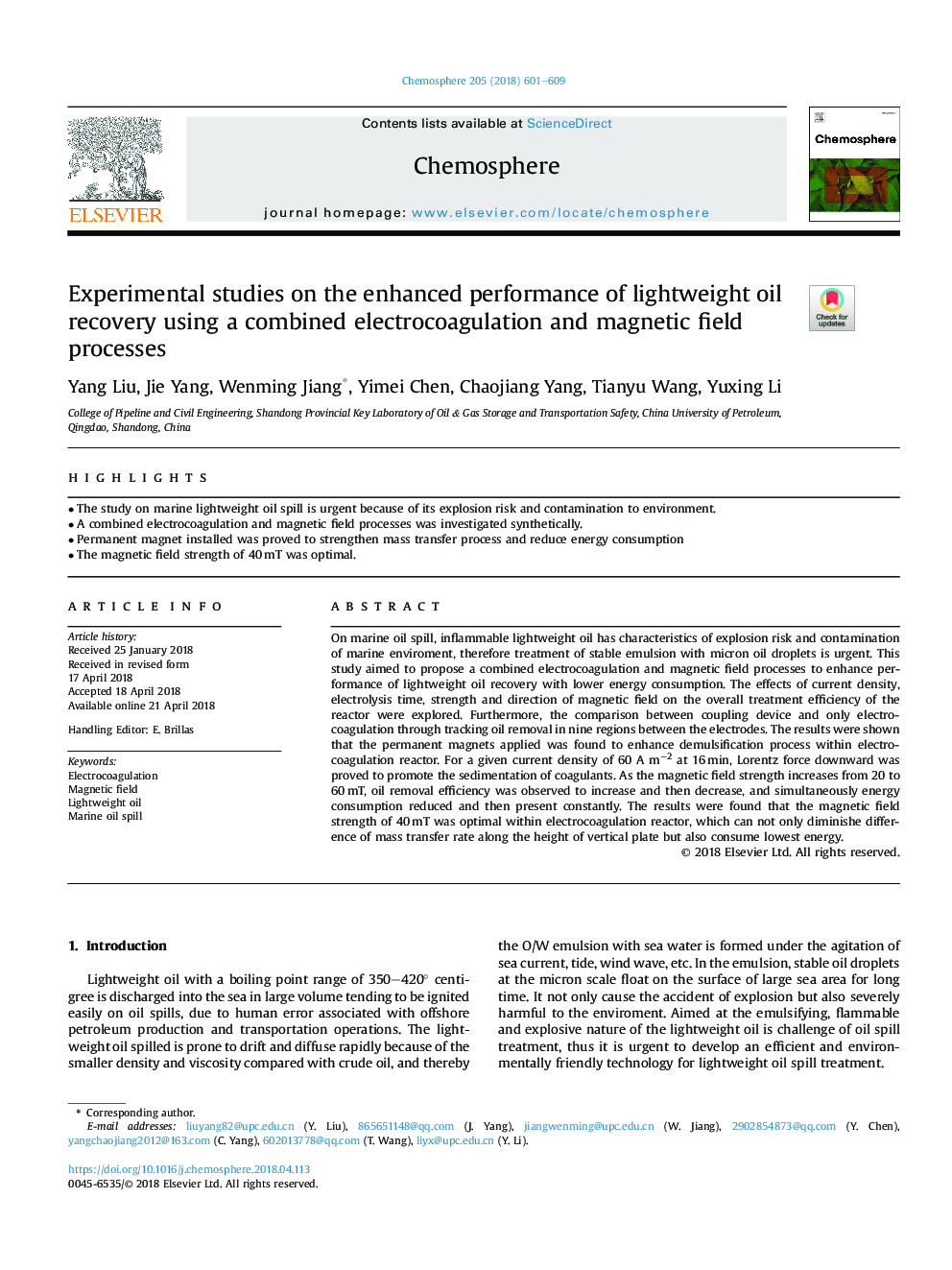| Article ID | Journal | Published Year | Pages | File Type |
|---|---|---|---|---|
| 8851161 | Chemosphere | 2018 | 9 Pages |
Abstract
On marine oil spill, inflammable lightweight oil has characteristics of explosion risk and contamination of marine enviroment, therefore treatment of stable emulsion with micron oil droplets is urgent. This study aimed to propose a combined electrocoagulation and magnetic field processes to enhance performance of lightweight oil recovery with lower energy consumption. The effects of current density, electrolysis time, strength and direction of magnetic field on the overall treatment efficiency of the reactor were explored. Furthermore, the comparison between coupling device and only electrocoagulation through tracking oil removal in nine regions between the electrodes. The results were shown that the permanent magnets applied was found to enhance demulsification process within electrocoagulation reactor. For a given current density of 60 A mâ2 at 16â¯min, Lorentz force downward was proved to promote the sedimentation of coagulants. As the magnetic field strength increases from 20 to 60â¯mT, oil removal efficiency was observed to increase and then decrease, and simultaneously energy consumption reduced and then present constantly. The results were found that the magnetic field strength of 40â¯mT was optimal within electrocoagulation reactor, which can not only diminishe difference of mass transfer rate along the height of vertical plate but also consume lowest energy.
Related Topics
Life Sciences
Environmental Science
Environmental Chemistry
Authors
Yang Liu, Jie Yang, Wenming Jiang, Yimei Chen, Chaojiang Yang, Tianyu Wang, Yuxing Li,
